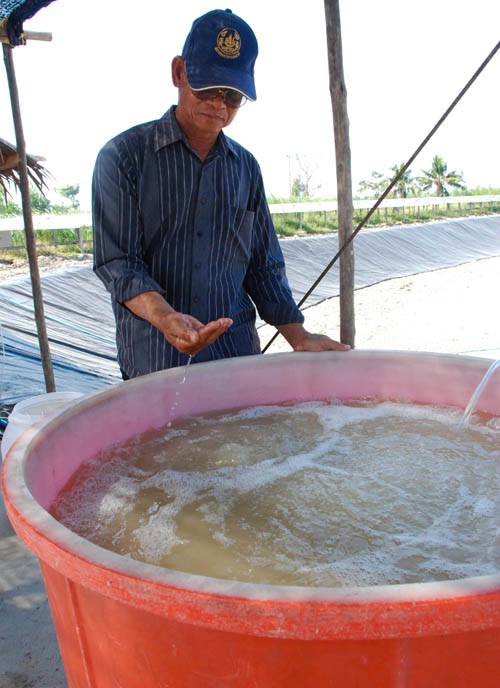The United States Agency for International Development’s Maximizing Agricultural Revenue through Knowledge, Enterprise Development and Trade Project promotes more sustainable and efficient use of aquaculture and fishery resources in the Association of Southeast Asian Nations (ASEAN) region with an emphasis on the Lower Mekong Initiative countries.
The project works with business organizations, farmer groups, governments, research institutions, and non-governmental organizations to adopt better aquaculture production practices and fisheries management. An important part of the project is to identify gender roles, barriers and opportunities in the aquaculture sector, and develop gender-sensitive activities.

IMPROVE ANIMAL HEALTH AND ENVIRONMENTAL MANAGEMENT
Disease outbreaks and poor production practices threaten the livelihoods of millions of small aquaculture producers in ASEAN. The project is implementing a series of public-private partnership activities to improve national and regional procedures for health certification for the movement of live shrimp and tilapia; the capacity of small-scale shrimp and tilapia farmers in key ASEAN countries to mitigate and respond to aquatic disease crises while reducing negative biodiversity impacts; and public and private sector management of the shrimp industry to address disease prevention, food safety, water quality, and pollution.
PROMOTE THE USE OF BETTER FEED AND FEEDING PRACTICES
To address the use of fishmeal in aquaculture feed, which depletes the stock of wild-caught fish, the project is partnering with the Southeast Asian Fisheries Development Center and the private sector to implement a regional training and outreach program to achieve better feed management and use of substitutes for fishmeal for lead farmers and government representatives in the tilapia, milkfish, and shrimp industries. The project is building and demonstrating successful partnerships to develop quality and sustainable protein substitutes for fishmeal.
DEVELOP AND PROMOTE FISHERIES AND AQUACULTURE SUSTAINABILITY STANDARDS
Sustainability standards and improvement projects are tools that can assist aquaculture producers and fisheries to enhance production sustainability and receive recognition that opens new markets. The project supports the industry to develop an ASEAN shrimp standard and a fishery improvement project protocol for open-catch fisheries that reflect production realities in the region while addressing key environmental and labor market requirements.
PARTNERS
The three-year project began in late 2011, is implemented by Nathan Associates Inc. and is part of Feed the Future, the U.S. Government’s Global Hunger and Food Security Initiative.







Comment
Make a general inquiry or suggest an improvement.